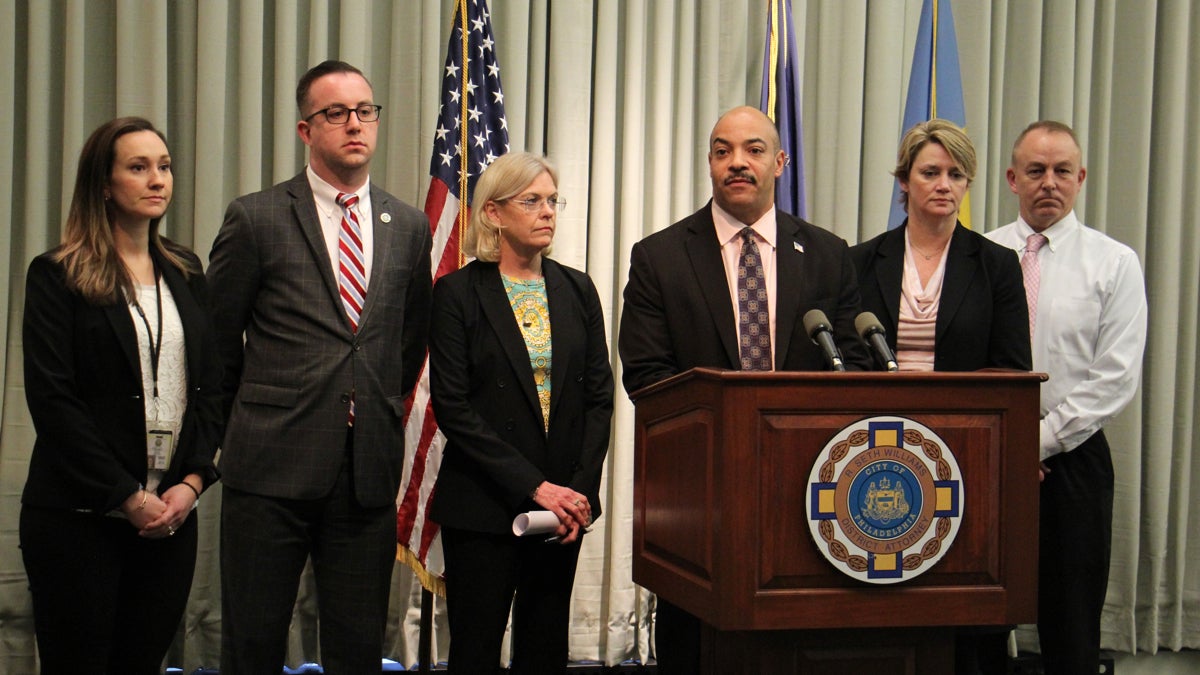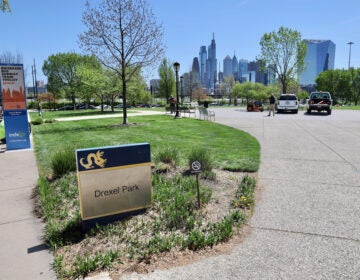Philly DA restructures unit investigating inmate claims of innocence

Philadelphia District Attorney Seth Williams announces the formation of an 'enhanced' Conviction Review Unit that will investigate the claims of those who profess innocence. (Emma Lee/WHYY)
The Philadelphia district attorney’s office unit that reviews innocence claims is boosting staff and creating new procedures that prosecutors say will make the division more independent.
District Attorney Seth Williams’ announcement of the moves follows sharp criticism from criminal justice advocates who have said the office has not taken the unit seriously, leading critics to point to how it has long been understaffed.
Now, however, the Post-Conviction Unit will be taken out of the appeals section of the district attorney’s office. Instead, three office staffers and one detective formerly with SEPTA will operate independently. Kathy Martin, who is the chief integrity officer serving in the office, will oversee the unit.
Williams, who is running for re-election against a growing slate of contenders and is in the midst of a federal investigation into his finances, made the announcement Wednesday, though information about additional personnel and new protocols were disclosed to the office staff many weeks ago.
“This unit will be independent,” Williams said. “As opposed to being supervised by any one division in our office. People might perceive that there’s a bias, because people in that unit handle the case.”
Marissa Bluestine with the Pennsylvania Innocence Project said the changes are encouraging. More staff in the unit, she said, shows prosecutors are taking wrongful conviction claims more seriously.
That said, it would have been even greater step toward independence and transparency had the office hired all outside prosecutors to fill out the unit, says Bluestine.
The unit was established in 2014 under Williams’ leadership.
“The fundamental question, of course, is why didn’t they do this two years ago when the unit was announced? What’s the difference between then and now?” Bluestine said.
Since 2014, the unit has overturned no cases, whereas similar units in other cities have exonerated dozens of prisoners.
“A conviction review unit should not be judged by the number of exonerations we find,” Martin told reporters, noting that the changes are intended to “gain the trust of the general public that we’re doing the right thing.”
Asked about whether he plans to resign, as the Philadelphia Inquirer editorial board and other critics have suggested, Williams responded as he has several times before.
“No, I’m not going to resign, but I’m very thankful you asked that question,” Williams said. “I made mistakes. I’ve accepted full responsibility.”
Williams belatedly reported $160,000 worth of gifts that he was required by law to disclose. The city Ethics Board fined him $62,000 for not reporting the gifts.
The Inquirer’s editorial board said that violated the public’s trust, writing “we can’t have the person we elected to uphold the law be a violator of the law.”
WHYY is your source for fact-based, in-depth journalism and information. As a nonprofit organization, we rely on financial support from readers like you. Please give today.




